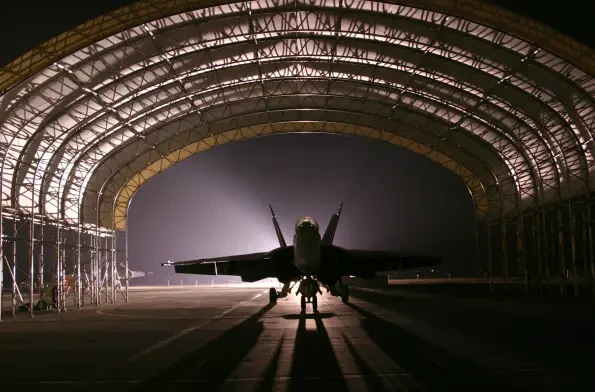In an era where the boundaries between commercial innovation and governmental defense needs are increasingly blurred, a Texas-based aerospace company is making significant strides to fortify national security through strategic expansion. Firefly Aerospace, known for its expertise in launch vehicles, spacecraft, and lunar landers, has embarked on a transformative journey by acquiring SciTec, Inc., a data analytics firm with deep roots in security applications. This move, valued at $300 million in cash and $555 million in stock, is more than a financial transaction; it represents a pivotal shift in how private enterprises can support critical defense missions. With regulatory approval pending and closure expected soon, this acquisition positions Firefly to integrate advanced software solutions with its hardware capabilities, addressing urgent needs in missile defense and space intelligence. The implications of this deal resonate across the aerospace and defense sectors, highlighting a growing synergy between private innovation and public safety.
Strategic Acquisition for Defense Enhancement
Firefly Aerospace’s acquisition of SciTec, Inc. marks a deliberate step toward diversifying its portfolio to meet the sophisticated demands of national security. SciTec brings a suite of cutting-edge software solutions, including target detection, missile warning and tracking, remote sensing simulation, and autonomous mission management. These technologies are already trusted by key government entities such as the National Reconnaissance Office, the National Geospatial-Intelligence Agency, and various units within the U.S. Space Force and Missile Defense Agency. By integrating these capabilities, Firefly aims to offer comprehensive, end-to-end solutions that combine physical launch systems with real-time data processing. This synergy is crucial for supporting rapid decision-making in high-stakes defense scenarios, ensuring that warfighters have access to accurate and timely information. The financial health of SciTec, with $164 million in sales for the trailing 12 months ending mid-year and a robust workforce of 475 employees—90 percent of whom hold security clearances—further strengthens Firefly’s operational foundation.
Beyond the technological integration, this acquisition aligns with broader governmental initiatives, notably the ambitious $175 billion Golden Dome homeland missile defense program championed by the current administration. Firefly’s enhanced capabilities through SciTec’s expertise position it as a key player in fulfilling such large-scale defense visions. The deal ensures that SciTec will operate as a subsidiary under its existing leadership, with CEO Jim Lisowski reporting to Firefly’s CEO, Jason Kim, maintaining continuity while leveraging new resources. This strategic alignment not only diversifies Firefly’s revenue streams but also embeds it deeper into the fabric of national defense contracting. With SciTec’s established contracts, including a recent $259 million Future Operationally Resilient Ground Evolution (FORGE) award from the U.S. Space Force, Firefly is poised to expand its influence in critical security missions. This move underscores a commitment to innovation that transcends traditional aerospace boundaries, focusing on software-driven solutions for modern threats.
Overcoming Challenges with Forward-Looking Solutions
Despite the promising outlook, Firefly Aerospace has not been immune to operational challenges that have tested its resilience in the competitive aerospace landscape. Recent setbacks, such as a delay in a 2026 Tactically Responsive Space mission for the Space Force due to a failed orbital payload launch, coupled with an Alpha rocket explosion during a ground test in late September, have raised concerns about reliability. However, with projected sales between 3 million and 5 million for the current year, the company remains optimistic about its trajectory. The acquisition of SciTec serves as a counterbalance to these hurdles, offering a pathway to stabilize and enhance operational capabilities through diversified expertise. By focusing on data analytics and processing, Firefly can support defense initiatives with greater precision, reducing dependency on hardware alone. This shift reflects a broader industry trend where software and data solutions are becoming as critical as physical assets in addressing security needs.
The intersection of commercial aerospace and national security imperatives is becoming increasingly evident, and Firefly’s latest move exemplifies this evolving dynamic. Private companies are stepping into roles traditionally held by government entities, providing innovative solutions to complex challenges like missile defense and space-based intelligence. Firefly’s integration of SciTec’s technologies positions it to deliver holistic systems that address both hardware and software requirements of modern defense. This trend suggests a future where collaborations between private firms and government agencies will be essential for maintaining national security in an era of rapid technological advancement. By overcoming recent operational difficulties with strategic acquisitions, Firefly demonstrates adaptability and a clear focus on contributing to the safety of the nation. The emphasis on rapid, accurate data processing for informed decision-making further cements its relevance in high-stakes environments where every second counts.
Building a Legacy of Security Innovation
Reflecting on Firefly Aerospace’s journey, the acquisition of SciTec, Inc. stands as a defining moment in enhancing the company’s role in national security. It represents a calculated effort to merge advanced data analytics with aerospace hardware, creating integrated solutions that support critical defense missions. The alignment with significant initiatives like the Golden Dome missile defense vision showcases how private enterprises can bolster government efforts in safeguarding the homeland. Looking ahead, the focus should remain on nurturing these partnerships, ensuring that technological advancements continue to meet evolving threats. Firefly’s commitment to overcoming past challenges through strategic diversification offers a blueprint for other companies in the sector. As the landscape of defense and space operations evolves, sustained investment in both innovation and collaboration will be vital to address future security needs, reinforcing the importance of integrated approaches in protecting national interests.













